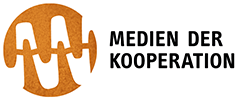Massimiliano Mollona (Universität Bologna):
Between Art, Activism and Anthropology. An exploration of artistic practices as militant research
The talk discusses ethnographic fieldwork as a process of sense making in the broader acception, that is of making sense of an increasingly complex and contested world, in which the practice of research and that of activism tend to overlap with unforeseeable consequences. I discuss particularly the relevance of art practices for an ethnographic engagement at the threshold between pedagogy and activism.
Massimiliano Mollona’s main research focus is on labour, class, and post-capitalism. His work experiments at the intersection between anthropology and socially engaged art, both through scholarly contributions, and through practical engagement with the art world, such as collaborative film projects; directorship of the Athens Biennale and the Bergen Assembly and the founding of the Institute of Radical Imagination, a collective of social centres, curators, museums, and artists operating at the intersection of art and social activism. Mollona is leading the project Cinema as Assembly, a collaboration with major European museums and international scholars on cinema as tool of political gathering across indigenous locales in the global south; with anthropologist James Clifford he is working on Impossible Realism, and with artist Dora Garcia, on the ‘unartist’ as part of his project on communist art.
Zoom infos:
Topic: 60 Minutes in Anthropology WS 2023/24 in co-op. with SFB 1187
Time: Nov 8, 2023 02:00 PM Amsterdam, Berlin, Rome, Stockholm, Vienna
https://uni-koeln.zoom.us/j/94597966553?pwd=T2xQWTFsZjBVUVJNWERXajZxcXlndz09
Meeting ID: 945 9796 6553
Password: 012805
All lectures take place in Cologne and also online.
This Lecture Series explores dynamics of sensing and sense making, and thus takes up a topic that is at the center of interdisciplinary work at the CRC “Media of Cooperation” (Siegen/Cologne). At the same time, it introduces the research of the CRC to researchers at the University of Cologne and various international working groups in and on the Mediterranean by using the well-established “60 Minutes” in Ethnography, Theory, Anthropology as a forum.
The increasing spread of sensor technologies and the equipping of smart devices with sensors restructures forms of perception, sensing and knowledge making. Sensors measure movements in the city, record air quality, temperatures and energy consumption, control production and logistics processes in interaction with algorithms and learning systems, track the behavior and well-being of people, recognize people in images and video recordings or re-organize (digital) terrains. Sensor data, their collection, analysis, and integration with other data formats, and their interaction with various forms of practice are constitutive not only of sensing, but also of sense making.
In this series of talks, we are interested in forms of sensing and sense making vis-à-vis major dynamics of socio-political and environmental crises in and beyond the Mediterranean, in particular (1) mobility and related border regimes, (2) growing environmental crises and their (non)management, and (3) forms of social mobilization (activism) and their control. All three areas are characterized by specific forms of socio-technical sensing and the engagement with it – sense making, both distributed among multiple actors, including humans, machines, and the environment itself. Sensor media are becoming increasingly ubiquitous, and come with a number of ethical and political challenges – such as the erosion of privacy, new forms of surveillance, and socio-technical proliferation of prejudices and various forms of bias. Often they are perceived as both – as drivers of, but also as possible solutions for different forms of social, political, technical and environmental crises.
In this lecture series, Sensing and Sense Making will be explored praxeologically – and thus in its various forms and formats. Part I will investigate forms of sense making in the context of deadly borders regimes, in hazardous environments and as part of social activism. Part II will look at the challenges and opportunities of ethnographic research and public interventions to engage with situations of crises and collaborative knowledge production.
Organized by Nina ter Laan, Carla Tiefenbacher and Martin Zillinger for the CRC “Media of Cooperation” Siegen/Cologne and the Department of Social and Cultural Anthropology (DoSCA), University of Cologne.


